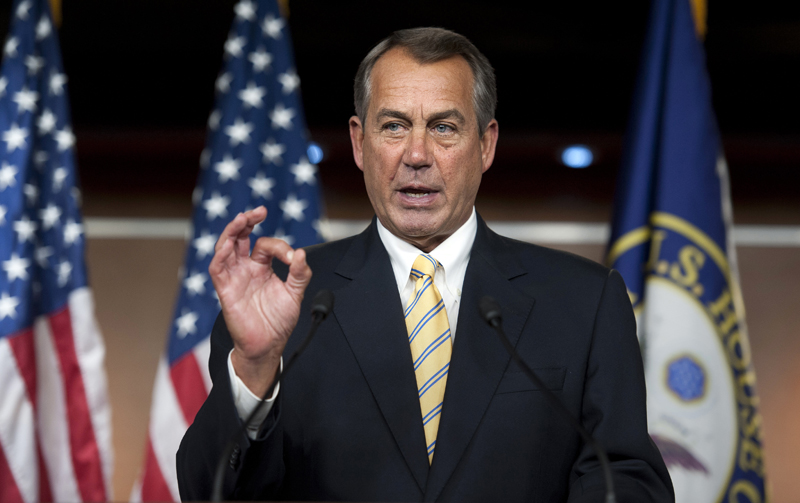Divisions appear to be emerging within the Republican Party on how to proceed with the debt limit — a tool conservatives see as a key point of leverage to extract ideological concessions from President Obama and the Democratic-led Senate.
In particular, a shift among House Republicans suggests that they recognize their options on how to approach the thorny issue are narrower than they had hoped.
On Wednesday one of the most conservative House members broke with Senate Republicans by arguing that a debt ceiling increase should be included in the final product of bicameral budget conference negotiations.
“My sense is that is the vehicle for moving the debt ceiling [is] the budget conference report,” Rep. Tom Price (R-GA), the vice chair of the Budget Committee, told reporters at a breakfast organized by the Christian Science Monitor. “That makes the most sense to me.”
That puts him at odds with Sens. Mike Lee (R-UT), Marco Rubio (R-FL) and Mitch McConnell (R-KY), who have repeatedly blocked Democrats’ effort to initiate talks to reach an agreeable budget framework so Congress can govern without leaping from crisis to crisis. Their main demand is that a debt limit hike be taken off the table and dealt with separately.
Price wouldn’t say whether those senators were right or wrong, but when asked about the dispute, said “it’s the difference between a majority and a minority.”
The conservative congressman’s remarks come after months of badgering by Democrats to push Republicans into appointing budget conferees and beginning negotiation. Recently Sens. John McCain (R-AZ) and Susan Collins (R-ME) have sided with Democrats, calling on their GOP colleagues to stop blocking regular order on budget talks.
Reached by TPM, Lee’s spokesman Brian Phillips dismissed Price’s argument.
“The debt ceiling was never part of either the House or the Senate budget and it should not be air dropped into the conference report,” Phillips said in an email.
In response to TPM’s query about whether GOP leaders agree with Price, Speaker John Boehner’s (R-OH) spokesman Michael Steel demurred. Boehner has for weeks refused to initiate negotiations until there’s a general framework agreed to beforehand.
“The Speaker, other House Republican leaders, Members, and — most importantly — the American people, are just beginning to discuss what Congress will do to raise the debt limit in a manner consistent with the ‘Boehner Rule,’ which requires spending cuts or reforms greater than the increase,” Steel said.
That signals that while House GOP leadership hasn’t given up on pushing for ideological demands in exchange for lifting the debt ceiling, they no longer believe they can separate the issue from broader budget negotiations, contra Republican senators. For Democrats, de-linking the two is a nonstarter because they fear that Republicans would return to the table after budget talks and demand more concessions in order to raise the debt limit.
But agreeing to negotiations carries other risks for Republicans. If the conference remains deadlocked, lawmakers will be able to force votes on a variety of items, which will redound to the political benefit of Democrats as it will expose the GOP’s continued opposition to including new revenues in a broad budget deal.
For now, Democrats are pleased with the shifting stance of some Republicans.
“The idea that House Republicans want to move forward and go to budget conference is certainly news to us, and we hope Congressman Price shares his views with Speaker Boehner and his caucus,” said Bridgett Frey, a spokeswoman for House Democrats’ budget chief, Rep. Chris Van Hollen (D-MD). “To date, House Republicans have joined their Senate colleagues in blocking this process. … Anytime they want to step up to the table and actually govern, we stand ready to join them.”






